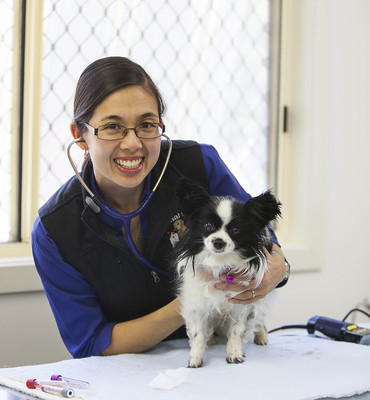By VICTORIA STONE-MEADOWS
SUMMER can be a rough season for your pets if they suffer from allergies.
The problem with cats and dogs is they cannot tell you when they are feeling a bit off, so veterinarian extraordinaire Dr Adele Scannell from Animal Aid has provided some helpful pointers to keep your pets happy and healthy this summer.
“To minimise the chance of exposure to problem plants and irritants, it is best to prevent access to areas where these plants may be,” she said.
“This may involve keeping your dog or cat on a lead or harness and avoiding walking them or letting them play in areas where problem plants may be growing.
Parks and off-leash dog play areas can be of particular risk and keeping a watchful eye for suspect plants when your dog is out for a walk is a good idea.”
Dr Adele has noted a useful way to help minimise exposure to irritation from plants is to wipe down sparsely haired areas of an animal’s coat after it has been outside with a damp, cool, cloth.
“This may help to remove some of the allergen burden and help reduce the severity of a skin allergy,” she said.
Many animals will manifest allergy symptoms in different ways – common signs you pet has come into contact with an irritant are itching and scratching, red skin with scabs, hair loss and sometimes even raised bumps that look like pimples.
“Animals that have a skin allergy may also be irritated and restless as they have a constant source of irritation that is difficult to control,” Dr Adele said.
Dr Adele said fleas could be a real issue during summer and the best measure against fleas for your pet was to take preventative action.
“Good flea control is important all year round but particularly during the summer months when fleas are most prevalent,” she said.
“It is important to watch for any weeds or new plants developing in garden beds and lawn and removing any wandering jew if it is found.”
If you think your pet has come into contact with a plant or other irritant that has set off an allergic reaction, the best course of action is to get in contact with your local vet before any infections other problems set in.
“Different medications can be used to help settle the itch and to treat any secondary skin infections,” Dr Adele said.
“Sometimes topical treatments and sensitive skin shampoos can also be tried to help with skin irritation and allergies.”







